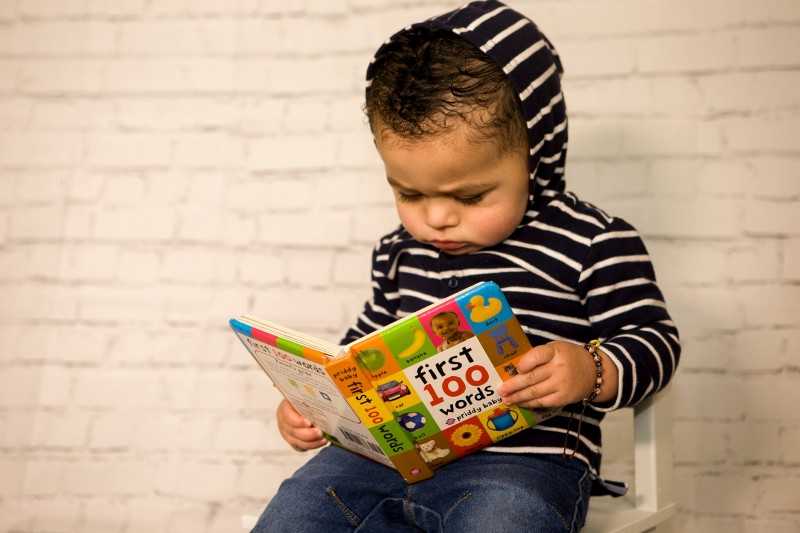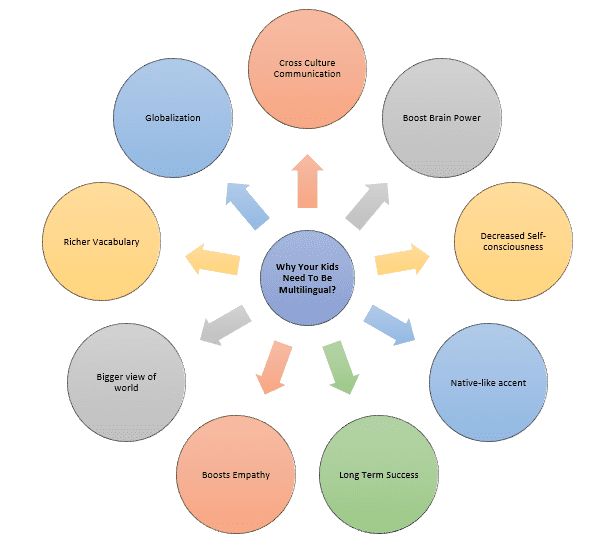Why Your Kids Need To Be Multilingual
Living in an increasingly diverse society, the demand, and need of speaking more than one language are becoming significant day by day. There is a growing appreciation for the value of learning new languages.
Thanks to available research, we can now understand how learning new languages helps us improve our communication with others. We establish better relationships, create a sense of self, spur our cognitive development and express who we are; all very integral aspects of being human.
And given the opportunity, this of particular importance for children.
Language learning is a great way to prepare kids to succeed in every aspect of their adult lives, due to the powerful positive implications language learning has for a child’s development.
Furthermore, research shows that at an early age, new languages are learned and acquired faster, retained better and spoken with exceptional pronunciation. Let’s discover why.
Basic stages of learning for kids:
- Learning Sounds:
Kids learn phonemes belonging to the language they are learning. Kids have the potential to recognize and produce those sounds, known as “phonemic awareness”, that helps, for example, children to read.
- Learning Words:
Children put sounds together to make meanings. Making different words is just basically a stream of sound. To make proper words children recognise where one-word ends and other starts. This is known as “word boundaries”.
- Learning Sentences:
Children can use those words to put them together to make a correct order. Children will also learn the difference between grammar and the meaning of the word.
Noam Chomsky created an example of this difference in the sentence “Colourless green ideas sleep furiously.” Children will know that although the sentence is grammatically correct, it doesn’t make sense. They know that green is a colour and can’t, therefore, be colourless. (Harrison, B., & Papa, R. (2005)
Many studies show that multiple languages benefit children in various ways, for example through cognitive advantages, such as problem-solving skills and creativity.
We have included below 5 reasons for learning languages at an early age:
-
Cross Culture Communication:
Nowadays learning new languages helps you stand out of the crowd. It is increasingly a need, not just a hobby. Language and culture are so intertwined that learning other languages builds cultural understanding and awareness while providing deep insights into how others see the world. Travelling to its countries of origin is also important in understanding the language. The increasing working mobility and opportunities to work abroad is creating greater demand for multilingual, who are able to connect more easily with native speakers.
According to Silke Rehman (2010) in her book “Make your Child Multilingual” she says that “Bilingual children build bridges to new relationships because they have the capability: they can talk to diverse people, they build different sorts of relationships, and they can be the bridge between two kids who can’t talk to each other, they can actually translate and help out”.
-
Boosts Brainpower:
Look at this TED Talk where Patricia Kuhl explains how children absorb sounds around them and “take statistics” on sounds they need to know. We are increasingly knowledgeable about how multiple languages can enhance a child’s intellectual and cognitive development. Their brains can adapt various teachings from their surroundings, language being one of them. It is believed that children can learn more languages at once if they interact with people speaking different languages. Learning multiple languages improves their brain’s executive function. Studies show that children learning multiple languages are better at: - Problem Solving
- Planning
- Concentration
- Multitasking
- Creative
- Higher I.Q
- Improved reading, writing, and verbal ability.
- Planning
-
Decreased Self-consciousness:
One of the greatest benefits of learning different languages at an early age stems from greater self-esteem and confidence.
As Dr. Kinzler explains, “children in multilingual environments have social experiences that provide routine practice in considering the perspectives of others: they have to think about who speaks which language to whom, who understands which content, and the times and places in which different languages are spoken.”
- Native-like accent:
Young learners have an edge as the accent is not learnt but adapted to each different language. Adults tend to mimic the accent that clearly depicts what they are trying to say. But as young learners absorb sounds much better, they have the benefit of naturally adapting their accent to each language they speak, which helps them both speak like a native and gain vocabulary and grammar knowledge.
- Long Term Success:
Learning languages as a kid helps broaden career options for the future. Many companies require multilingual people with great communication skills. Therefore, children learning different languages are open to a world of opportunities and have a wider range of career options. As the world becomes increasingly interconnected and globalised, children can gain powerful advantages in their development through language learning.


